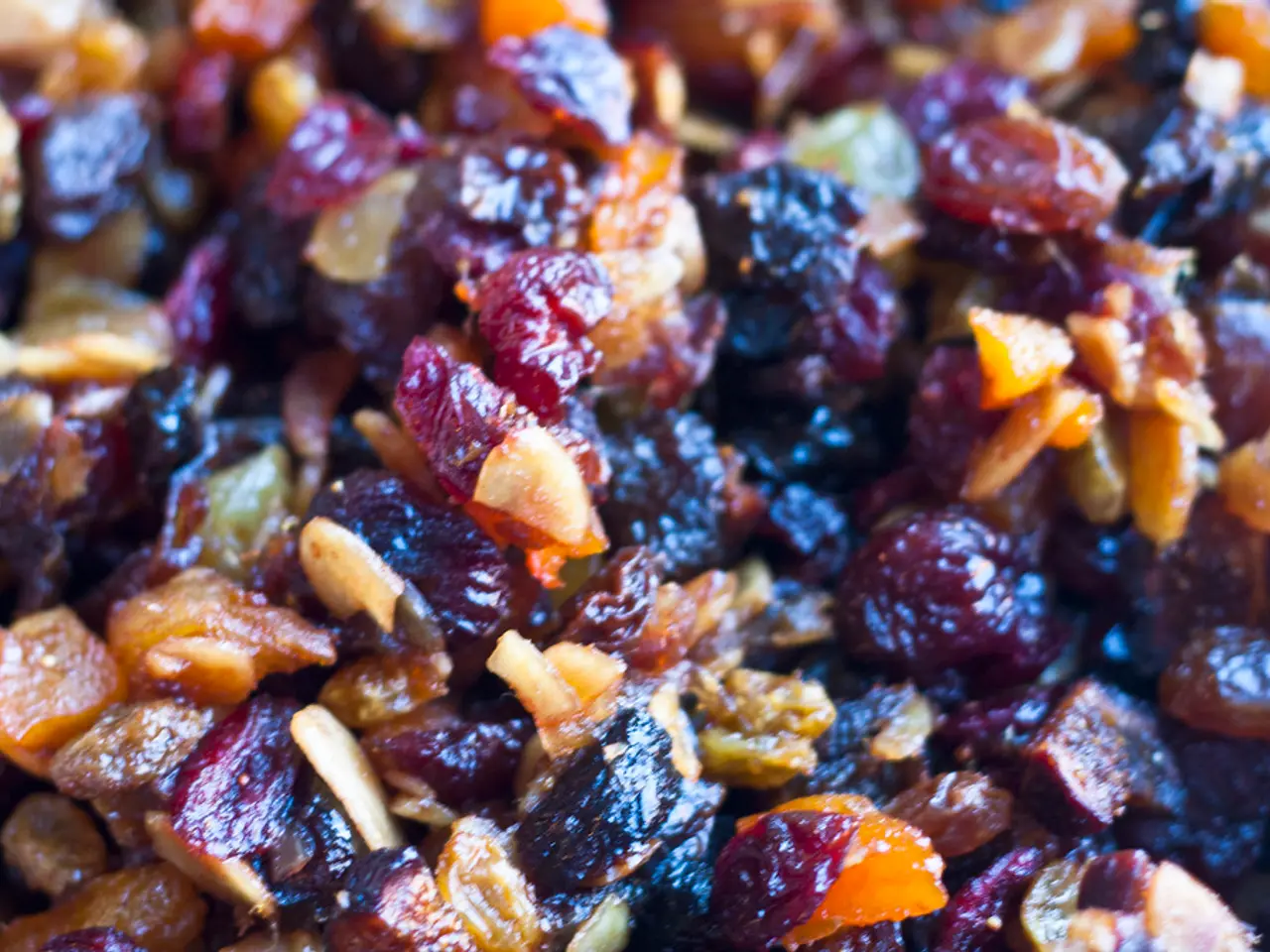Essential Information on Heavier Elements in Infant Food Products
Baby food has been under scrutiny in recent years due to the presence of heavy metals like arsenic, cadmium, lead, and mercury. These elements occur naturally in the earth's crust and can be found in various forms in the soil, water, and air.
As crops grow, they may absorb these heavy metals, leaving trace amounts in the plants we consume. This is particularly concerning for babies, whose smaller body sizes and metabolism make them more vulnerable to the harmful effects of heavy metal exposure.
Parents can take several key steps to minimize their babies' exposure to heavy metals in baby food.
Firstly, avoiding rice-heavy products is advisable. Rice and rice-based baby foods tend to accumulate arsenic due to the natural and industrial contamination of soils and water where rice is grown. Limiting infant rice cereals, rice puff snacks, and other rice-based foods helps reduce arsenic exposure.
Secondly, diversifying grains and vegetables is essential. Offering a variety of grains (like oats, barley, and quinoa) and vegetables can minimize the accumulation of heavy metals from a single type of food source.
Thirdly, choosing organic or tested baby foods where possible can be beneficial. Some manufacturers are subject to state and federal safety initiatives requiring testing and reporting of heavy metals. Parents can look for brands that comply with these standards under regulations like the Baby Food Safety Act of 2024 or California AB-899, which mandates testing and disclosure of heavy metals.
Fourthly, home preparation of baby foods can reduce the risk compared to some processed commercial products. Using produce sourced from trusted suppliers or regions with lower environmental contamination may help.
Lastly, staying informed about recalls and safety alerts is crucial. Parents should follow updates from trusted regulatory agencies such as FDA’s Closer to Zero initiative and state health departments regarding safe limits and guidance on baby food heavy metal levels.
While it is challenging to eliminate exposure entirely due to environmental contamination, conscious choices about food types, variety, and brands can significantly reduce heavy metal intake in infants and toddlers.
It's important to remember that while heavy metals have been detected in baby food, the levels are extremely low and typically too low to cause damage. The key is to provide a child with a healthy variety of foods, in moderation, so they aren't eating too much of one thing. Pureed vegetables and meats can also serve as a baby's first food.
The issue of heavy metal contamination in baby food has drawn increased legislative focus. In 2021, the U.S. Food and Drug Administration (FDA) launched the Closer to Zero project to reduce exposure to contaminants in food eaten by babies and young children. This initiative aims to further lower the levels of heavy metals in baby food, ensuring a healthier future for our little ones.
- The earth's crust naturally contains heavy metals like arsenic, cadmium, lead, and mercury, which can be found in various forms in the soil, water, and air.
- By diversifying grains and vegetables, parents can minimize the accumulation of heavy metals from a single type of food source in their children's diet.
- Choosing organic or tested baby foods can be beneficial, as some manufacturers are subject to state and federal safety initiatives requiring testing and reporting of heavy metals.
- Staying informed about recalls and safety alerts from trusted regulatory agencies like FDA’s Closer to Zero initiative and state health departments is crucial for making informed decisions about baby food choices.




